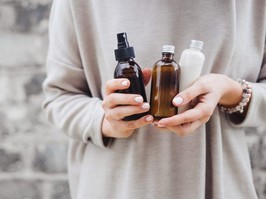powered by:
valneva canada inc.
weed at a young age linked to substance use disorders
those who first used cannabis or prescription drugs between the ages of 12 and 17 had a greater risk of becoming dependent within a year than those aged 18 to 25.
mar 31 2021
 4 minute read
4 minute read


“research has shown that brain development continues into a person’s 20s, and that age of drug initiation is a very important risk factor for developing addiction.” /
getty images
a new study led by national institute on drug abuse (nida) researchers suggests earlier use of cannabis may be associated with a related substance use disorder, indicating that delaying exposure may lower that risk.
a higher percentage of adolescents who first try cannabis or first misuse prescription drugs between the ages of 12 and 17 “develop the corresponding substance use disorder” than those who first try when aged 18 to 25, notes a statement from the national institutes of health (nih), of which nida is part.
“though not everyone who uses a drug will develop addiction, adolescents may develop addiction to substances faster than young adults,” dr. nora volkow, nida director and a lead author of the analysis, says in the statement.
“this study provides further evidence that delaying substance exposure until the brain is more fully developed may lower risk for developing a substance use disorder,” dr. volkow advises of the findings published this week in jama pediatrics.
“research has shown that brain development continues into a person’s 20s, and that age of drug initiation is a very important risk factor for developing addiction,” says emily einstein, ph.d., chief of nida’s science policy branch and a study co-author. citing the importance of drug use prevention and screening, einsten suggests that “offering timely treatment and support to young people who need it must be a public health priority.”
advertisement
advertisement
as part of the study, nida researchers analyzed data from the nationally representative 2015 to 2018 national surveys on drug use and health . they determined how many people aged 12 to 17 and how many aged 18 to 25 had a substance use disorder in the past year and identified first-time use or misuse of nine drugs: tobacco, alcohol, cannabis, cocaine, methamphetamine, heroin and the prescription drugs opioids, stimulants and tranquilizers used non-medically.
investigators then evaluated past-year disorders at 12 months or less after first drug use; at more than 12 months, but less than 24; at more than 24 months, but less than 36; and at more than 36 months.

“the researchers found that the prevalence of past-year cannabis use disorder was higher for adolescents than young adults at all examined time frames since first use of the drug,” the nih statement points out.
within 12 months of the first use of cannabis, 10.7 per cent of adolescents had developed a substance disorder compared to 6.4 per cent of young adults.
“one in 10 teens having a marijuana addiction — that’s huge,” volkow reportedly told bloomberg . using cannabis also gives them a higher chance of becoming addicted to other drugs later, she said, according to the houston chronicle.
advertisement
advertisement
investigators also found higher substance use disorders among adolescents versus young adults at all time frames with regard to non-medical use of prescription drugs.
indeed, for opioids, the development of a related use disorder within 12 months — at 11.2 per cent for adolescents and 6.9 per cent for young adults — was somewhat in line with the percentages for weed, study figures show.
that said, the largest divide within 12 months of first prescription drug misuse was for stimulant use disorder. in all, 13.9 per cent of adolescents had the related disorder compared to 3.9 per cent of young adults.

overall, according to addiction professional, those who first used weed during adolescence had “double the prevalence of a substance use disorder than users of nicotine, alcohol and, in most user categories, prescription drug misusers.”
adolescents’ higher prevalence of substance use disorders within 12 months of initiation for both cannabis and prescription misuse suggests “a link between faster transition to substance use disorders and a young age of initiation,” addiction professional notes.
the findings “emphasize the vulnerability of young people to developing substance use disorders,” notes the nih statement. the agency further reports that the data excluded incarcerated individuals or homeless people not living in shelters, “possibly underestimating the prevalence of substance use disorders across the findings.”
advertisement
advertisement
although potency was not addressed in the study, findings published last year in addiction noted weed today may be as much as 25 per cent stronger than it was in the 1970s. that has some sounding the alarm about possible harms associated with high-potency cannabis.
paul armentano, deputy director of the national organization for the reform of marijuana laws, recently commented on a separate recent study exploring whether or not allowing medical cannabis in a u.s. state or establishing dispensaries is associated with more young people using weed.
the study data from 46 states clearly showed “medical cannabis access can be legally regulated in a manner that is safe, effective and that does not inadvertently impact young people’s habits. these findings should reassure politicians and others that states’ real-world experience with medical cannabis distribution is a success from both a public health and a public safety perspective,” armentano noted.
subscribe to weekend dispensary , a new weekly newsletter from the growthop.




